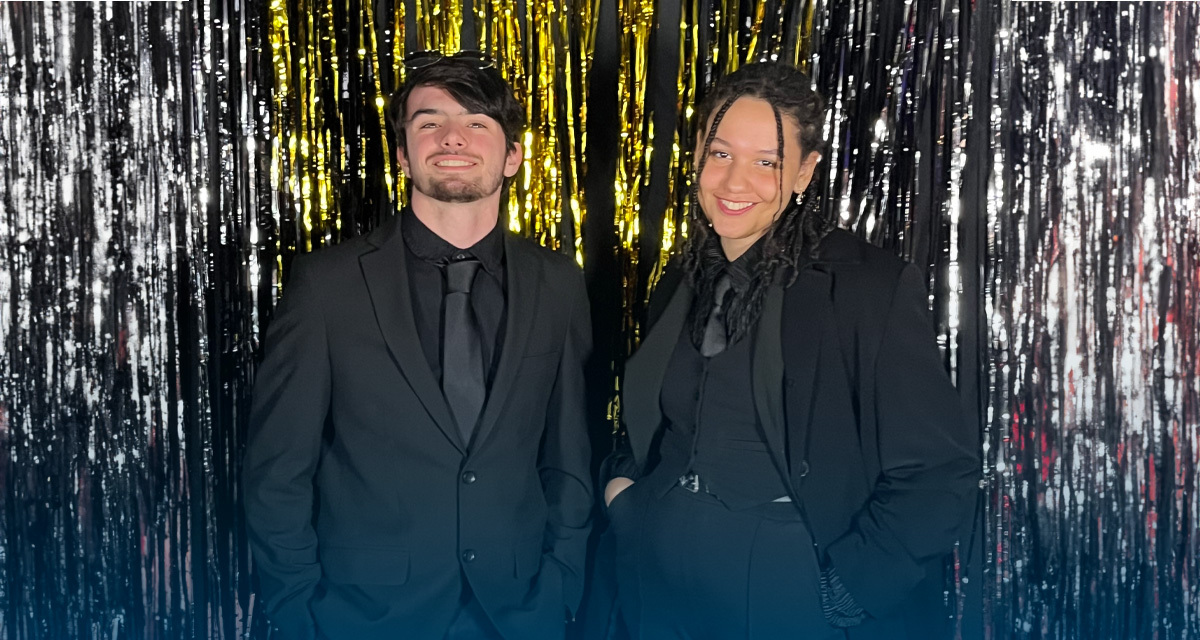How a First-Year’s Film Won National Acclaim: Mason Cummins ’27 on His Award-Winning Project
Mason Cummins ’27 always works hard on his school projects, but he had no idea his film for a Communications 101 class would end up winning one of only 30 Awards of Excellence at the annual Broadcast Education Association (BEA) Festival of Media Arts—the largest contest of student film projects in the nation.
As a first-year student in a 100-level class with an entry-level assignment, Cummins had limited access to the time, tech and other resources most of his 1,800 competitors had. But where others may have had more experience, he had the vision and execution to create a faith-based short film that challenges its viewers to think about how they pursue God and what they can do to deepen their faith.
The Movie Assignment
Cummins created his film for Communications 101: Visual Storytelling, a class that introduces new communication arts majors to the different aspects of a story and how to tell them through various media formats. For the first big class project, Chris Underation, associate professor of communication arts, asked Cummins and his classmates to create a fictional story using video. Underation gave them a few guidelines (use storyboards and keep it between five and seven minutes) and then handed over complete creative control of the movie projects.
Cummins had an idea jump out to him almost immediately. “I’m really interested in how technology is affecting us because of how prominent it is in our everyday life now and how people tend to gravitate toward it as a way of escape,” he says. “I wanted to express in a creative way that in some situations that’s not the only option for you, but that God is present wherever you’re able to find him.”
The Film Project Process
Cummins’ film, “Tell Us How You Feel,” follows a female college student, played by Jasmine Scott ’27, who keeps avoiding hardship by putting on her headphones and entering her emotions on a virtual diary on her phone, which is also called “Tell Us How You Feel.” She relies on technology instead of God during her struggles.
It took Cummins around 24 cumulative hours to film and edit the piece. He especially had to focus on the audio editing. Each time the main character puts on her headphones, the sound completely drops out and viewers can only hear the keyboard ticks as she types on her iPhone. “I had to make sure that I wasn’t going to get copyright struck from any of the audio that I used,” Cummins explains. “Finding and producing audio that you can use in a film without any legal issues is actually a lot more difficult than it sounds.”
Cummins shot the entire film on his iPhone 13 mini, made the “Tell Us How You Feel” website himself on Google Sites for Scott to interact with and then added the sound (or lack thereof) with editing. Before coming to Gordon Cummins had limited experience with filming, but he says, “I knew coming into the assignment that one of my strengths was going to be the ability to make up any lack of video knowledge in the editing department.”
The trickiest part of the process was the final shot, where the main character is alone in Gordon’s chapel. “You have no idea how hard it is to find the chapel completely empty! That was definitely a stroke of luck,” Cummins said. “But we needed the shot. I wanted to make something faith-related without it being like your typical Christian content. I wanted it to be raw, to display a vulnerability in Christianity that you don’t always see in media.”
Winning the Film Competition
Underation recognized the potential in Cummins’ assignment and asked Cummins if he could submit the work to BEA. A month later Cummins found out he won—the fifth student from Gordon to win a BEA. The judges praised his sound and editing skills; one said, “Nice montage of differing angles of Jasmine in the chapel at the end. Clever story-line and sweet pay-off at the end. Really lovely sound design.” Another wrote, “Very well shot—great use of different angles and cameras. Editing is exceptional. Nice story.”
Cummins was surprised and delighted at the win. “It’s a validation of the effort that I put into doing a movie. I didn’t really come into college with the thought that I wanted to be a filmmaker, but it’s definitely something that I want to pursue as an interest now.”
Cummins hopes that viewers will think about their own experiences with God “and how they choose to pursue him, and if there’s anything that they could change in their life in order to feel a more natural connection to him.” Cummins also hopes future students, communication arts majors or not, will see his story as proof that you don’t need to be the most skilled, equipped or connected to win film competitions or do well in college. “When you get a spark of an idea, sometimes you just need to go for it,” he says.
Watch Cummins’ entire video on Youtube >
Pictured above: Mason Cummins ’27 (left) and Jasmine Scott ’27 (right)
 The Bell
The Bell